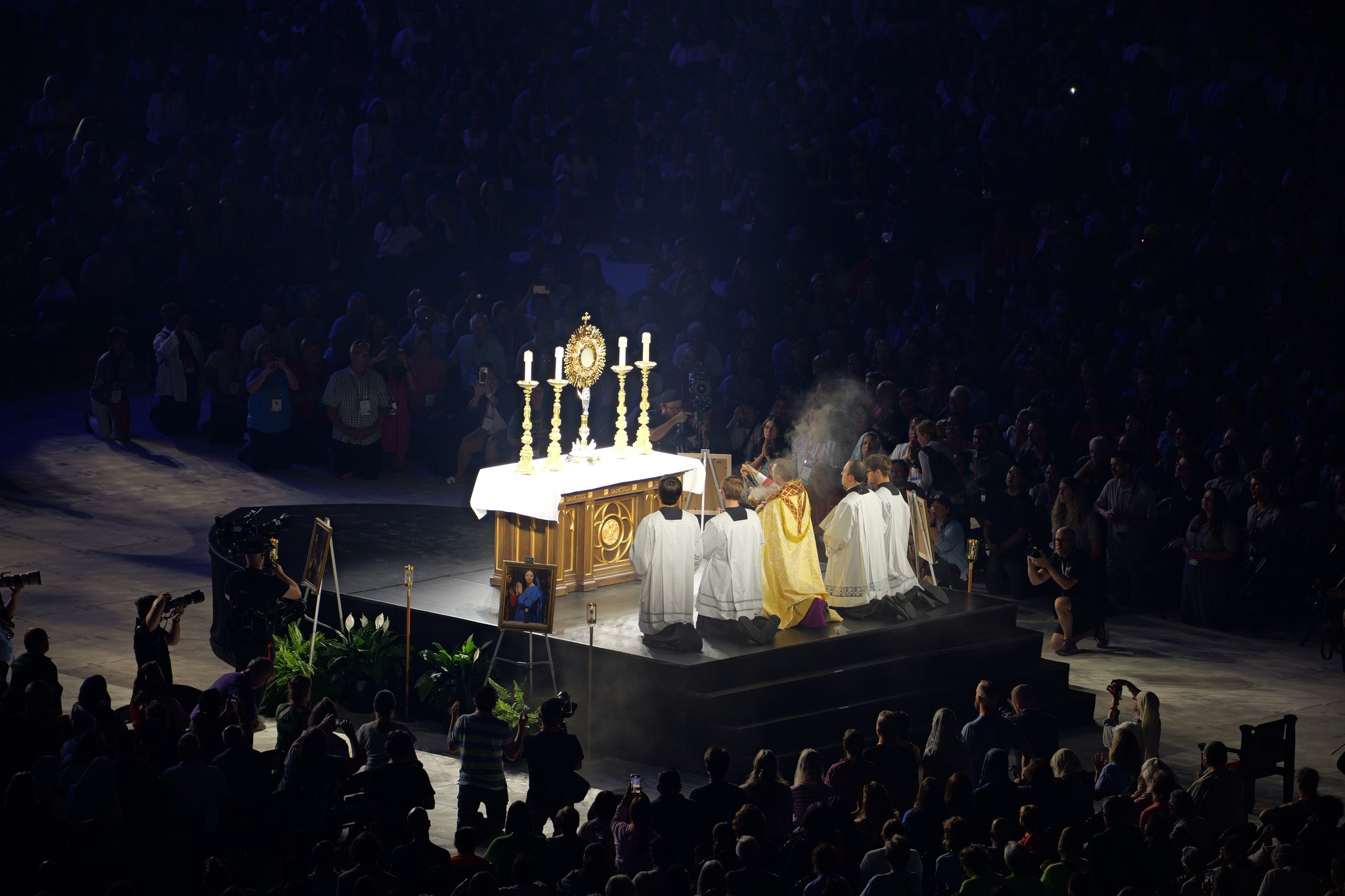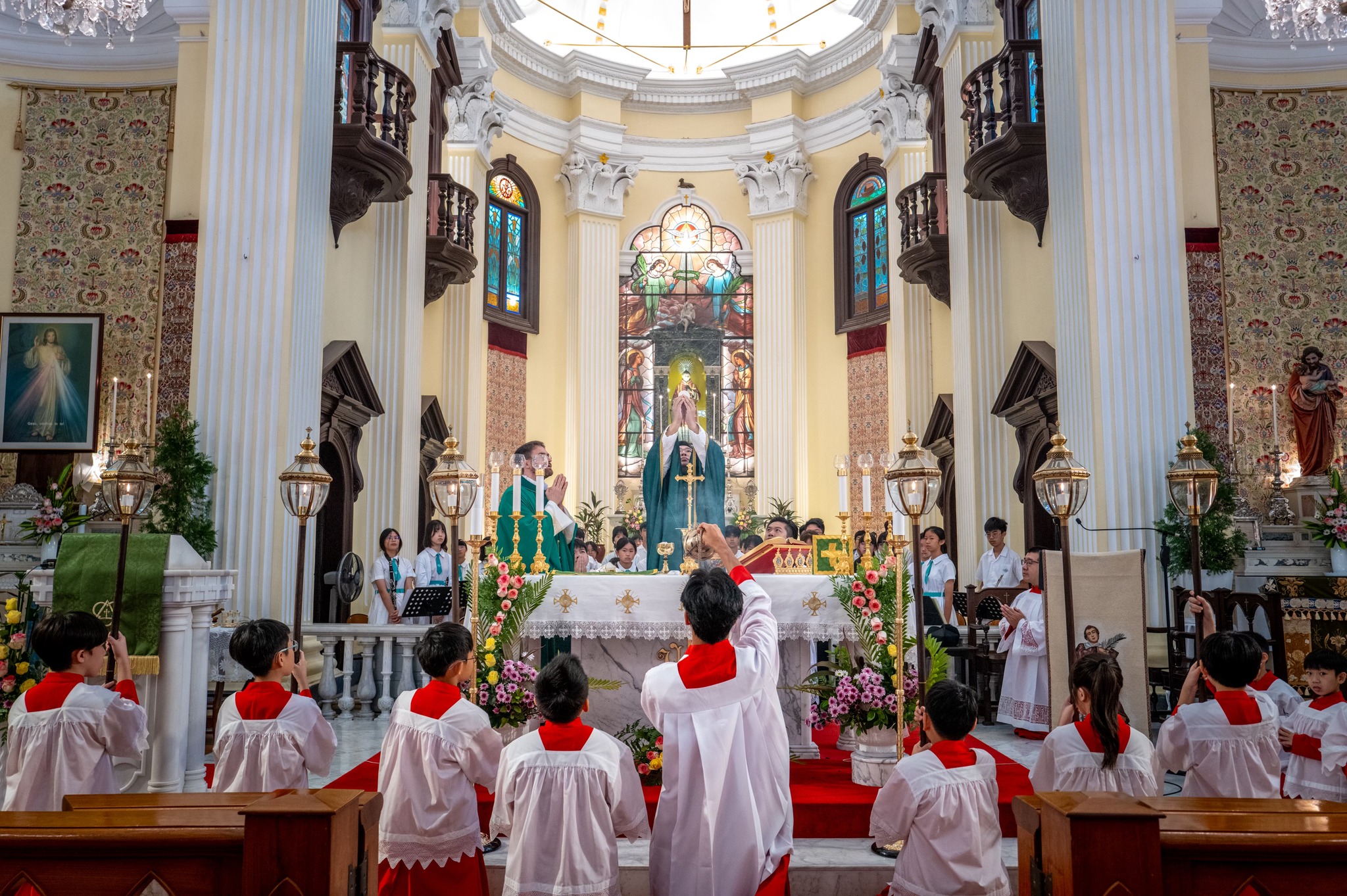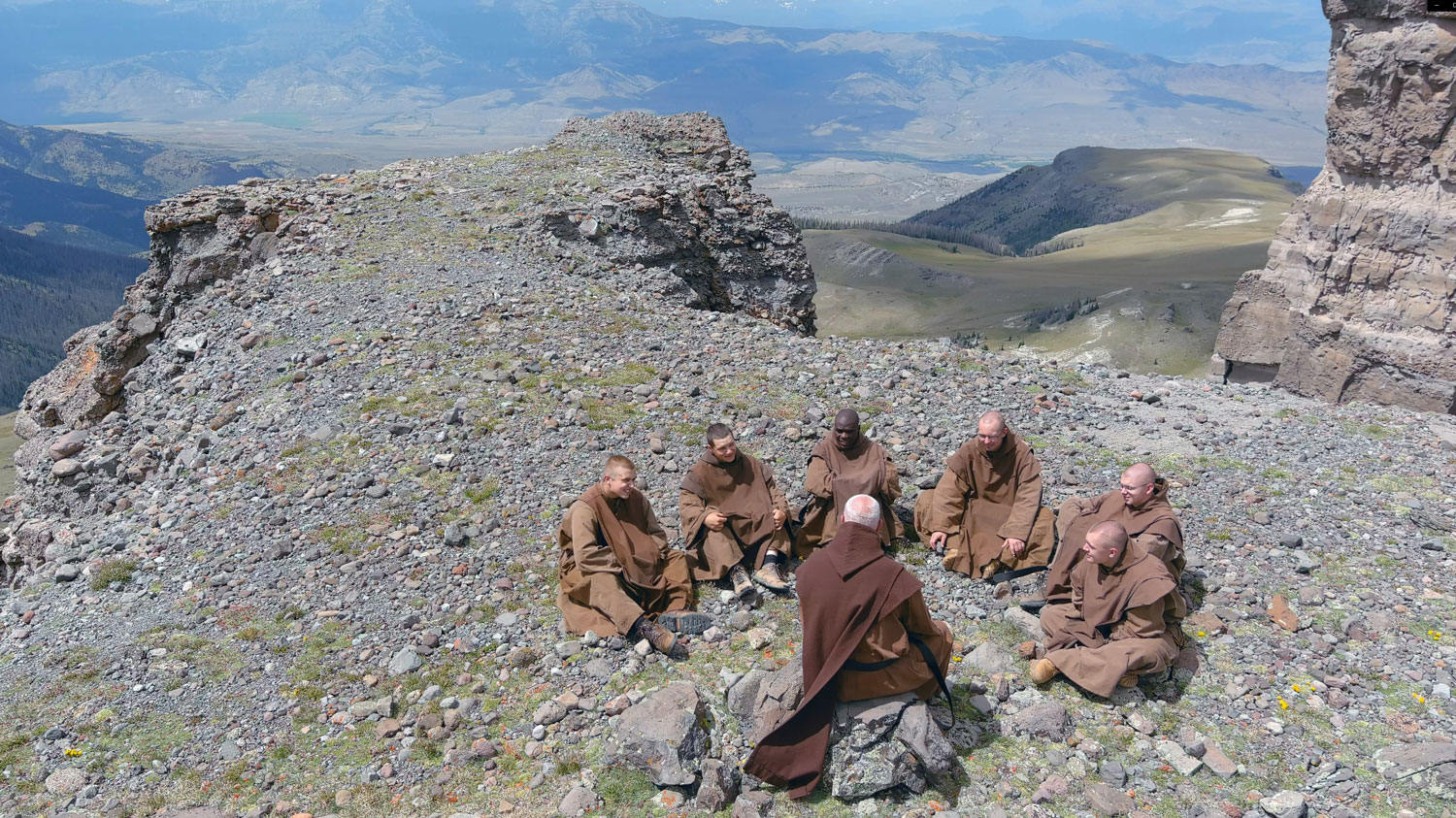FAUSTO GOMEZ OP
The Psalmist presents himself: “I am a pilgrim on the earth” (Ps 119:19). We live “as aliens on the land” (Ps 119:19). And St. Peter: “We are strangers and pilgrims on earth” (1 Pet 2:11).
We are pilgrims, not vagabonds who have no concrete goal. As monk Cassian said it well: “There is no arrival unless there is a definite plan to go” (Conferences). A pilgrim is not a tourist, not just a traveler, but a traveler searching for the true meaning of life, for the transcendent and spiritual – for happiness. Not a bystander, but a journeyman longing for his or her promised land, for Jerusalem or the new Jerusalem; searching – consciously or unconsciously – for a supreme being: the universal quest for happiness is a mysterious search for God. St. Francis of Sales goes further and tells us that all human beings have an inclination to love God, their creator (Introduction to the Devout Life).
From cradle to tomb, every human being is a pilgrim, going somewhere. An American tourist visited the famous Polish Rabbi, Hafetz Chaim. The tourist was amazed at the austerity of the room of the Rabbi, and asked him: “Rabbi, where is your furniture?” The Rabbi answered him with a question: “Where is yours?” The American responded: “Mine? But I am only a visitor here, I am passing through?” “So am I, so am I, passing through,” the Rabbi responded (from W. Barclay). We are all visitors on earth, wayfarers, pilgrims passing through.
The pilgrim has a goal to reach, a goal that will improve his or her life. This goal or end is the first in intention and the last in execution. For the believers, the goal is the afterlife or heaven, and the intermediate ends are the practice of what is good, of virtues, of love. Hence, the pilgrim is a hopeful person.
Every pilgrim hopes a better tomorrow by reaching many destinations – proximate or remote. A Christian, member of the pilgrim Church (cf. GS 57), hopes to achieve many temporal destinations, plus one: “a new heaven and a new earth” (cf. Rev 21:1-4). For the believer, life is a journey of hope to God, who is “the ultimate goal of man” (GS 41).
On February 28, 2013, the last day of his pontificate, Benedict XVI gave a brief and emotional farewell in the evening. He said then: I will simply be “a pilgrim who is beginning the last part of his pilgrimage on earth.” Pope Francis, like St. John Paul II before him, calls himself a pilgrim in the world, and often – like his journey to Canada (July 2022) – “a penitential pilgrimage.” In reality, all true pilgrimages are pilgrimages of faith, penance and conversion, of prayerful and joyful hope through which pilgrims long and look for God.
The end of the good road looks very attractive, because it is imagined as full happiness, but it is not easy to reach it. It is often a bumpy and stony road, and at times the road’s visibility is almost zero, a truly dark night when grave sufferings, serious doubts, loneliness depress the pilgrim. Still, the virtue of the pilgrim, hope rooted in faith and practiced in love, makes the seemingly impassable patches of the road more bearable, even joyful. One remembers often St. Paul: “The sufferings of this present time are not worth comparing with the glory about to be revealed to us” (Rom 8:18).
How Do I Nurture my Hope in God? Like the other virtues, hope needs the life of love to journey forward: “Only with steps of love, we march forward” (St. Augustine).
Checking my human hopes and my “great” hope include for me reading and re-reading helpful and inspiring books which continue feeding and refreshing my heart. The Sacred Scriptures is the best word on hope for me. One of my favorite texts on hope is from Isaiah: Those who hope in Yahweh will renew their strength. They will soar as with eagle’s wings; they will run and not grow weary; they will walk and never tire (Is 40:31). The Gospels in particular continue consoling us in the midst of the evil in the world, our personal – and other significant ones’ – weaknesses and suffering. They present to us a portrait of Jesus Christ as our hope, and of his resurrection as its foundation. Indeed, in Christ we live; in Christ we shall die, and in Christ we hope to live forever (cf. Rom 6:8).
In the Gospels, we learn about Mary, the Mother of Jesus the Son of God, the Lady of the fiat and the magnificat, our Mother, who keeps telling us “Do whatever He tells you” (Jn 2:5). Vatican II tells us that Mary is a sign of sure hope and solace for the pilgrim people of God (LG, 68).
The saints are excellent traveling companions, and in particular the mystics. Their lives and works feed my soul and strengthen the wings of my blessed hope. Certainly, O God, “Thou has made us for Thyself and our hearts are restless until they rest in Thee” (St. Augustine, Confessions).
True relative but real happiness is possible: “already” in this temporal life. Full happiness, however, “not yet”, for our homeland is in heaven(Phil 3:20). To be faithful to the goal of life, to walk by the good road, we need God’s help, we need to pray. Thus says the Lord: Stand at the crossroads, and look, and ask for the ancient paths where the good way lies; and walk in it, and find rest for your souls (Jer 6:16). I love hope and therefore to be a pilgrim with a thousand human hopes plus one – divine, theological hope.
My hope is the hope of a vulnerable pilgrim, of a sinner loved by God. What really matters is love, God’s love in my heart, a love that “hopes all things” (1 Cor 13:7). Only the practice of hopeful love will lead us happily on the way to heaven, to total happiness! This is what hope – faithful and loving hope – is all about, not “a pie in the sky” but creative fidelity to the present, to today. We try to live the present fully by doing what we ought to do with love: with love of God, neighbor – particularly needy neighbor – and God’s creation. Saint Teresa of Calcutta was asked once: “What are your plans for the future?” Her answer: “I just take one day at a time. Yesterday is gone. Tomorrow has not yet come. We have only today to love Jesus.”
We are pilgrims on earth and citizens of heaven: Eye has not seen; ear has not heard nor has it so much as dawned on man what God has prepared for those who love him (1 Cor 2:9).


 Follow
Follow


